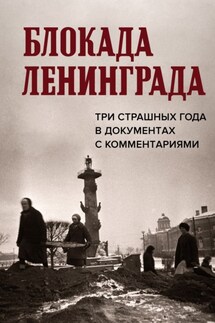Solar Wind. Book one - страница 10
“You are not so simple my Verissimus,” Hadrian said, looking intently at Marcus, “What do you feel when you look at them?”
“What am I looking at?” Marcus didn't understand.
“On the young flesh, on the girls, on the boys. Don't you want to be the owner of these bodies? Take them, to own them? I see your passions raging, but you're secretive, Marcus Annius Verus. Don't hold back, let yourself go. Let go!”
Hadrian pronounced the last words in almost a whisper, leaning toward Marcus's ear, and Marcus smelled the incense that rubbed the emperor’s body, the scent of Paestum roses. Something tickled his ear. Oh, yes, it was Hadrian's beard! Marcus wanted to withdraw, but dared not, because no one knows what can infuriate the ruler of Rome. What if he decided that he smelled bad from his mouth and Marcus was squeamish? Or something like that? Hadrian's mind was unpredictable.
But Hadrian pulled himself away, and Marcus peered into his serious face, blazing with a secret fire in his eyes. These were the eyes of a man tired of life, tired from a lot of seeing, a lot of surviving, a man exhausted by nosebleeds, eyes talking about the inner heat that had not yet been extinguished.
The emperor sat down on a chair, stroking a graying beard, thick, curled into small rings.
Domitia Lucilla told Marcus about that beard. Allegedly, Caesar's face in his youth was spoiled by ugly scars and warts, and to hide his ugliness he grew his facial hair, although before him no ruler of Rome was bearded. He himself declared himself a supporter of Hellenism, an ancient Greek culture, and all the great Greeks, as it was known, were famous for their facial hair. With the exception of Alexander, the Great, perhaps. But Homer, but Thucydides, but Aristotle?
“What am I talking about? About passions.” Hadrian continues. “Let it be known to you, but I have a passion too. One, for life…”
The emperor fell silent, waiting for Marcus's clarifying question, and he did not make himself wait.
“What passion, Caesar?”
“Curiosity, my friend, I am curious, and this is my disease. Because of her, I lost my Antinous.” He blinked his eyes quickly, as if trying to drive away the tears that came running. “I was in Egypt and believed the fortune-telling that the soul of Antinous, so beloved by me, would not leave his body before me. She would ascend to the sky a wonderful star for only a moment, and then would return to earth and breathe life back into it. And my boy, my Antinous, believed it, too.”
Hadrian fell silent as if he found it difficult to speak, as if he were being suffocated by the sobs he had once forcibly restrained in order not to show weakness, and now the moment had finally come. But the emperor did not sob, after a certain pause he continued with a shuddering voice.
“In the evening, Antinous entered the waves of the Nile, and we stood on the shore, raising our heads to the sky. And we saw him, my Antinous. There, in the distant depths of heaven, a new star shone. There was a sign of the gods, the revelation of Jupiter!”
Hadrian looked up to the ceiling lined with colored mosaics depicting the assembly of the all-powerful deities of Rome. There was Jupiter, Juno, Mars, Hercules, and other, less powerful and significant deities. They strolled along the celestial ceiling, treading on the clouds with their heels, as if on the ground.






